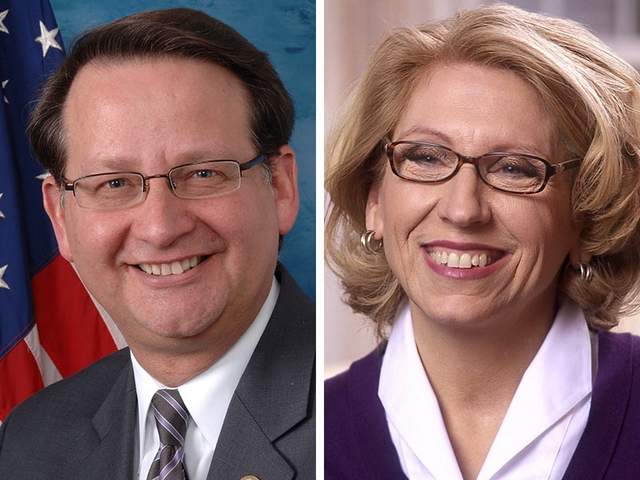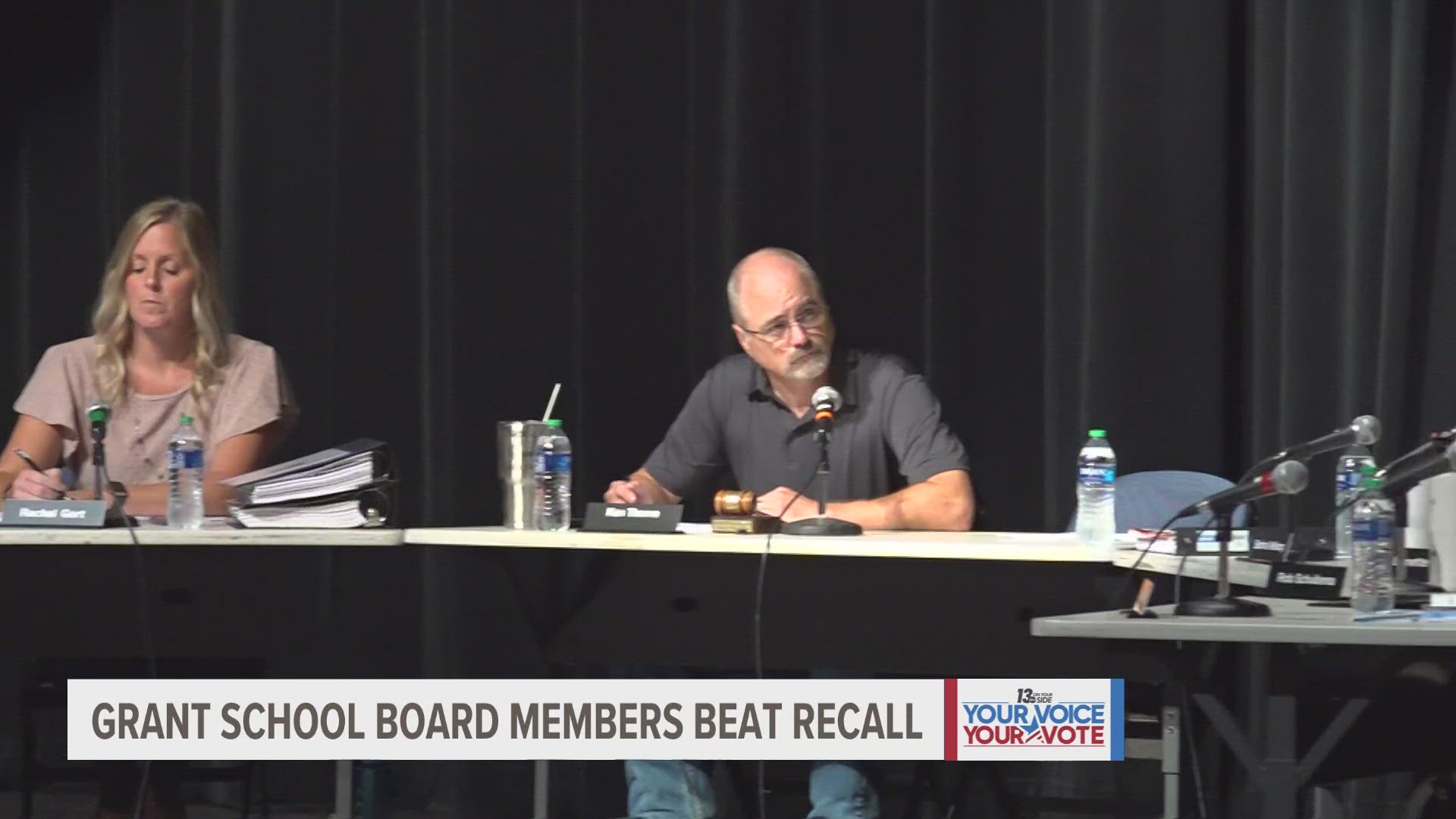(Detroit Free Press) -- Democrats grabbed a key victory in Michigan's mid-term elections with U.S. Rep. Gary Peters winning the state's open U.S. Senate seat.
Republican nominee Terri Lynn Land called Peters shortly after 9 p.m. and "congratulated him and wished him luck," her campaign spokeswoman Heather Swift said.
Peters, a three-term congressman from Bloomfield Township, had been heavily favored to win despite facing Land, a two-term former Michigan secretary of state who led her party's statewide ticket in 2002 and 2006.
"Michigan built our nation's middle class, and tonight is the beginning of how we can come together and make it tougher and stronger than ever before," Peters said. "I look forward to hitting the ground running in the Senate and getting to work to continue fighting for Michigan."
It was one of few bright spots for Democrats in Michigan, however, with results favoring Republican candidates in several other statewide offices, including governor, attorney general and secretary of state.
Going into Election Day, Land had a slim chance of winning: With incumbent Gov. Rick Snyder, a Republican, caught in a tough re-election battle with Democratic gubernatorial nominee Mark Schauer, her backers hoped that she could ride his coattails if enough GOP supporters came out to buoy his efforts.
Most considered that a longshot at best, however.
"Tonight's loss in Michigan's U.S. Senate race is a disappointing reality for everyone who wanted see this open seat turn red," said state Republican Party Chairman Bobby Schostak.
The results continued Michigan's statewide bias toward Democrats in federal elections. No Republican presidential candidate has won the state since George H.W. Bush in 1988; no Republican senatorial candidate has won the state since Spencer Abraham in 1994.
Land had been widely expected to challenge that bias this year with longtime U.S. Sen. Carl Levin, a Democrat, deciding not to run for a seventh six-year term. But her campaign failed to capitalize on leads in public opinion polls early in the year. Peters has led practically every poll taken in the race for months.
Democrats were so confident of victory in the Senate race, in fact, that Peters became the only Democratic U.S. Senate nominee in the final weeks of the campaign to welcome President Barack Obama — his disapproval ratings high — into Detroit for a rally the weekend before the election.
Obama was on Detroit radio on "The Mildred Gaddis Show" on WCHB (1200 AM/99.9 FM) on Monday and on "Afternoon Mix with Frankie Darcell" on WMXD Mix 92.3 FM Tuesday, urging voters to turn out and vote for Peters as well as Schauer.
Michael Traugott, with the Center for Political Studies at the University of Michigan, said Land never turned what was a perceived advantage — she had run and won statewide before — into an actual one in the race against Peters.
"I would describe it (Land's effort) as a failed campaign ... because someone made the decision to hide the candidate. She wasn't accessible to the press, she lost out on media coverage and she had limited contact with the voters," he said. "She never had a chance to connect."
Meanwhile, he noted that Peters has run a typical effort for a Democratic candidate, mobilizing a base of supporters, especially in southeastern Michigan, and successfully appealing to women voters across the state.
A survey done by EPIC-MRA of Lansing for the Free Press, WXYZ-TV and their outstate polling partners late last month showed Peters with a 15-percentage-point lead overall — 50%-35% — and a 20-point lead among women voters. The poll's margin of error was plus or minus 4 percentage points.
Fivethirtyeight.com, a website that projects outcomes based on aggregating poll data, had given Peters a better than 99% chance of winning the election.
Even so, Peters is expected to head to a Senate that fivethirtyeight.com and other media widely expected to switch to give Republicans majority control. At present, Democrats are in control of the Senate with a 55-45 edge but this year's election map pointed to Republicans picking up at least six seats to gain the majority. Late Tuesday, Republicans had already closed that margin and will have control of the Senate beginning in January -- though not the 60 votes needed to break a filibuster.
The race between Land and Peters was the most expensive in Michigan history heading into Election Day — though most of the spending was done by outside groups that were making huge investments in this and other races across the U.S.
Between them, the two candidates' campaigns had spent about $19 million as of Oct. 15 — $10 million for Land, $9 million for Peters — but outside groups had spent a total of more than $35 million to influence the race.
Most of that, $20 million, was spent on Peters' behalf, according to a Free Press analysis of Federal Election Commission records and TV advertising tracked by the Michigan Campaign Finance Network. Outside groups spent $15 million on Land's behalf.
Outside labor and environmental groups — as well as Senate Majority Leader Harry Reid's political action committee — led spending on Peters' behalf. The conservative groups Ending Spending and Americans for Prosperity led spending to help Land's campaign.
Contact TODD SPANGLER at 703-854-8947 or at tspangler@freepress.com. Follow him on twitter at @tsspangler.


